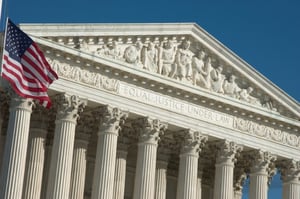In recent months, US legislators and politicians have taken steps towards instituting laws that may ultimately require Chinese companies listed on US stock exchanges to delist. Some Chinese issuers, anticipating that they will be required to delist if such laws are finalized and implemented, have taken preemptive actions, including seeking dual listings in other jurisdictions and engaging in “take private” transactions with private purchasers that will remove them from public exchanges. Some of those take take-private transactions have squeezed out minority shareholders at prices that may merit appraisal rights suits before the appropriate courts, typically those in the Cayman Islands. Investors should be on the lookout for more of these take-private actions and be aware of what steps should be taken to protect their rights through appraisal actions as the situation continues to develop.
Background
In 2002, following several major corporate and accounting scandals, including the Enron, Tyco, and Worldcom frauds, the United States Congress approved a series of legislative acts designed to monitor for and prevent market and accounting abuses. This legislation was commonly referred to as the Sarbanes-Oxley Act. Among other things, the Sarbanes-Oxley Act created the Public Company Accounting Oversight Board (the “PCAOB”). The PCAOB was tasked with overseeing the accounting audits of public companies and other issuers, and it can be described as an “auditor of auditors”.

In order to serve its function, the PCAOB required all companies traded on public exchanges in the United States to provide it with access to their financial audits and supporting materials. This requirement extended to foreign companies listed on US exchanges, as well as to US-based companies with operations in foreign jurisdictions requiring that portions of their financials be audited by foreign auditors. In the years following its creation, the PCAOB was able to negotiate formal cooperative arrangements or effectively similar arrangements with foreign regulators around the world granting it the access it required to the audits of US-listed companies performed by foreign auditors.
However, the major exception was China. Chinese law takes an expansive view of state secrets, holding that essentially all transactions with state-owned enterprises constitute state secrets. Chinese law bars auditors subject to its jurisdiction from providing foreign agencies access to their audit materials because such materials might contain state secrets. This prohibition extends even to the Chinese branches of the Big Four accounting firms, which are technically distinct entities from their parent organizations. As such, the Chinese government viewed the PCAOB’s efforts to obtain audit materials from and regulate the audits of Chinese companies or the Chinese operations of other companies as an affront to its national sovereignty.
The PCAOB and the Chinese government made various unsuccessful attempts at compromise, including entering into a significant memorandum of understanding in 2013, but the PCAOB felt that China never complied with the terms of the memorandum. To date, the PCAOB remains unable to oversee the audits of Chinese companies or Chinese operations of other companies listed on US exchanges.
Reverse Merger Scandals
Tensions between the PCAOB and its Chinese counterparts were exacerbated over the years by a number of accounting scandals involving US-listed Chinese companies that PCAOB had been unable to exercise oversight on due to China’s restrictions.
The first set of scandals involved smaller companies that went public on US exchanges via a mechanism known as a “reverse merger.” These reverse mergers are a somewhat complicated mechanism, wherein a Chinese company will first form a “variable interest entity” or “VIE” in the Cayman Islands in order to circumvent restrictions under Chinese law against foreign ownership Chinese entities. These VIEs are shells that hold contractual arrangements with the Chinese company that mimic the rights to profits of share ownership. Then, the Chinese company would utilize the shell of a formerly active public company and cause that company to legally acquire the VIE’s shares, thus allowing the Chinese company to trade on US public markets without meeting the requirements and regulatory burdens of undergoing an initial public offering.
Several Chinese companies that used reverse mergers to go public in the early 2010s were revealed to be frauds. Short sellers investigated and profited from exposing these companies, as was described in the 2017 financial documentary, The China Hustle. However, after a wave of litigation regarding these companies, use of the reverse merger mechanism subsided.
Luckin Scandal
Tensions were aggravated anew recently when in April 2020, Luckin Coffee, China’s largest coffeehouse chain, revealed that its chief operating officer had reported fraudulent revenues of approximately USD 310 million in the company’s previous year’s financial statements. The company’s US-traded American Depositary Shares (“ADSs”) plummeted in value before the company was delisted in July of 2020. Moreover, this scandal occurred amidst an ongoing trade war between the Chinese and US governments.
Legislative Enforcement Efforts
In the wake of the Luckin scandal, in May of 2020, the United States Senate passed the Holding Foreign Companies Accountable Act by unanimous consent. If passed into law, the bill would prohibit securities of a company from being listed on a US exchange if that company failed to comply with PCAOB audit requirements for three consecutive years.
Given that the Chinese government continues to prohibit Chinese auditors from complying with PCAOB requirements, the bill is widely viewed as likely to lead to the delisting of all US-traded Chinese companies if passed into law.
However, the bill must be passed by the United State House of Representatives before becoming a law. The House of Representatives has, to date, declined to take up the issue. Some speculate that US institutional investors that are holders of US-traded securities or the investment banks that facilitate US listings of Chinese securities have exercised influence over Congress to delay the House of Representative’s consideration of such a bill.
Regulatory Enforcement Efforts
Faced with stalled legislative efforts to enforce the PCAOB’s mandates, the President of the United States requested that the Presidential Working Group on Financial Markets (the “PWG”), an advisory body to the President, generate and publish a series of recommendations that could be taken under the executive branch of government’s authority to the same end as the halted legislation.
In August 2020, the PWG published five recommendations that the Securities and Exchange Commission (the “SEC”) take in that regard. The main recommendation was that the SEC, pursuant to its own powers and without awaiting new legislation, institute a requirement that any company not submitting to PCAOB audits be delisted. The recommendation introduces a caveat that would allow foreign companies to comply with PCAOB audits by allowing a non-Chinese regulated audit firm to perform a “co-audit” with their regular Chinese auditor. (However, following the publication of the recommendation, a number of commentators questioned the likelihood of China allowing co-auditors to provide information to the PCAOB when they would not allow the original auditor to do so.)
Additional recommendations included requiring enhanced and prominent issuer and fund disclosures of the risks of investing in non-compliant US-listed foreign companies, requiring greater diligence by index-tracking funds that invest in such companies, and issuing guidance to investment advisers with respect to fiduciary obligations when considering investments.
At present, the SEC is considering the PWG’s recommendations.
Impact of Delisting
The impact of a requirement that all Chinese companies listed on US exchanges delist might be quite substantial. There are approximately 200 such listed companies. The market capitalization of these companies is approaching USD 1.8 trillion. (As drafted, the Senate bill would require not only Chinese companies to delist, but additionally US companies with substantial Chinese operations such that portions of their financials must be audited by Chinese auditors. Notably, Walmart has nearly 20% of its audit performed by Ernst & Young’s Chinese branch, and 3M has nearly 10% of its audit performed by PwC China. However, it is nearly certain that any legislation or regulatory requirement will be amended to exempt these and similar US-based companies from the requirement to delist before it is instituted.)
The United States itself would suffer from the forced delisting of these companies in a number of ways. First, US investors would lose the opportunity to participate in these Chinese companies’ growth. Second, US investors currently holding these stocks and would suffer any decline in price due to their being forced to trade over-the-counter or on a different exchange. Third, US investment banks would lose access to the lucrative fees that come from working with these companies to issue shares on US exchanges. And fourth, the US’s standing as the de facto premier source of financing would be damaged.
Nonetheless, it is not improbable that the US government will move forward with a required delisting unless alternative means of enforcing the PCAOB’s requirements can be found, as US legislators and politicians may conclude that they cannot allow their securities regulations to be flouted. Nor is it clear that the Chinese government will concede to the United States' requirements, though its companies facing losing needed access to capital.
Some sources have concluded, however, that the impact of any forced delisting of Chinese companies from US exchanges on US investors, especially US institutional investors, will actually be minimal. Institutional investors have easy access to exchanges throughout the world, and some Chinese companies will relist on other exchanges, especially the Hong Kong stock exchange.

In recent years, the Hong Kong stock exchange has loosened rules to make it easier for companies to list there, including allowing companies with weighted voting rights to list and allowing companies without profits to list. Chinese e-commerce giant Alibaba recently listed shares on the Hong Kong stock exchange in addition to its ADSs listed on the NYSE, and the move was widely viewed as being intended to provide an “escape valve” for holders of its US-traded ADSs, which may be exchanged for such shares on the Hong Kong stock exchange, in the event delisting is required. Other companies may follow suit, especially as the Hong Kong stock exchange continues to loosen its restrictions.
Other companies have attempted to preemptively address a potential forced delisting by negotiating a “take private” action, where an outside private equity group or other consortium of investors, often including or led by the company’s current management, purchase the company’s equity entirely and remove it from public trading.
Fair Value for Minority Investors
In some cases, existing investors have accused the company of being complicit in intentionally negotiating a price for a take-private transaction that is lower than the company’s fair value to the benefit of the purchasing private investors and detriment of the existing shareholders. Minority investors that are “squeezed out” (i.e., forced to sell their shares) can contest the valuation and seek damages from the company before the appropriate courts, which in most cases are in the Cayman Islands.
However there are fairly strict requirements the investors must meet in order to be eligible to exercise appraisal rights under Cayman Islands law, including having converted their ADSs to common shares at date certain prior to the extraordinary general meeting (the “EGM”) that the new purchasers will call in order to approve the merger, having issued a written objection to the company prior to the EGM, having dissented to the merger following the EGM, having attempted to negotiate compensation with the company, and having properly executing all notices and authorizations required by the Cayman Islands court.
Investors should be on the lookout for notices from their portfolio companies of an EGM for the approval such a take-private action. The notice will typically include the deadline to convert ADSs and take other required steps.
Deminor maintains relationships with competent Cayman Islands counsel and has successfully aided investors in exercising appraisal rights in the Cayman Islands in the past. If you receive a notice of an EGM to approve a take-private action in the Cayman Islands or otherwise become aware of such an action and would like to take steps to protect your rights to seek appraisal before the court, please reach out to Deminor as soon as possible, as the deadlines involved are strict.





